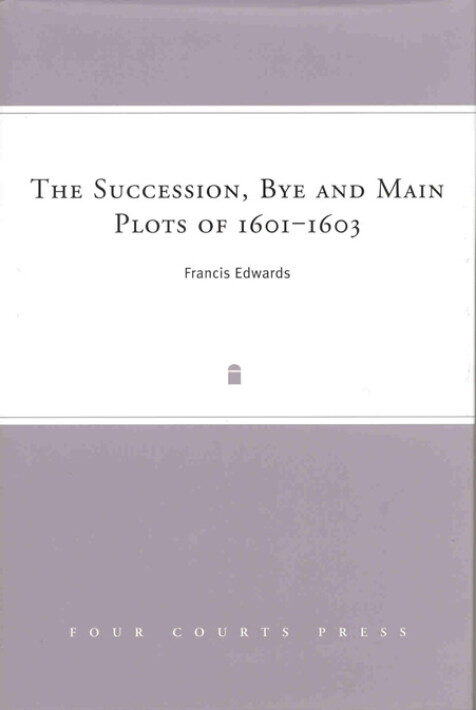The succession, bye and main plots of 1601–1603
Francis Edwards
Like his volume on earlier plots in the reign of Elizabeth I, Plots and plotters in the reign of Elizabeth I (2002), Edwards' new study draws heavily on archival records, immersing his reader in a world of espionage, interrogation and intrigue. The events of 1601 to 1603 determined the main course of English history, and much that touched the history of Ireland, down to our own time. Important tributaries flowed subsequently into the main stream but the riverbed was never again diverted.
Determined by the events of 1605, which followed logically the events of these years, England remained Protestant, consciously anti-Catholic and anti-Spanish in a state that was determinedly for the civil control of church matters. The main topics of 1601 to 1603 turned on the transition from Tudor to Stuart rule, with the enthronement of James VI and I, rather than the problematic Arbella Stuart whose case is also treated. The filo conducente is the continuing hegemony of the Cecils under Robert, principal secretary, and the ongoing removal of rivals of the house which began in 1571.
Notable rivals removed in this era were Sir Walter Ralegh, Baron Cobham and Lord Grey of Wilton. Only Henry Percy, earl of Northumberland, was left over to be eliminated politically in the aftermath of the gunpowder plot. The first three rivals named were involved in two more plots, the main and the bye, which are dealt with in detail. The unhappy relations between England and Ireland, occasioned by the English determination to conquer Ireland, and the Irish determination not to be conquered, form a dark backdrop to the whole. The influence of parliament, and the impending crisis occasioned by the physical decline of Elizabeth also feature.
Francis Edwards was Archivist to the British Province, SJ, 1959–86 and to the Archivum Romanum SJ until 1989. He now works in the parish of Farm Street Church, London. He is the author of Plots and plotters in the reign of Elizabeth I (2002).

